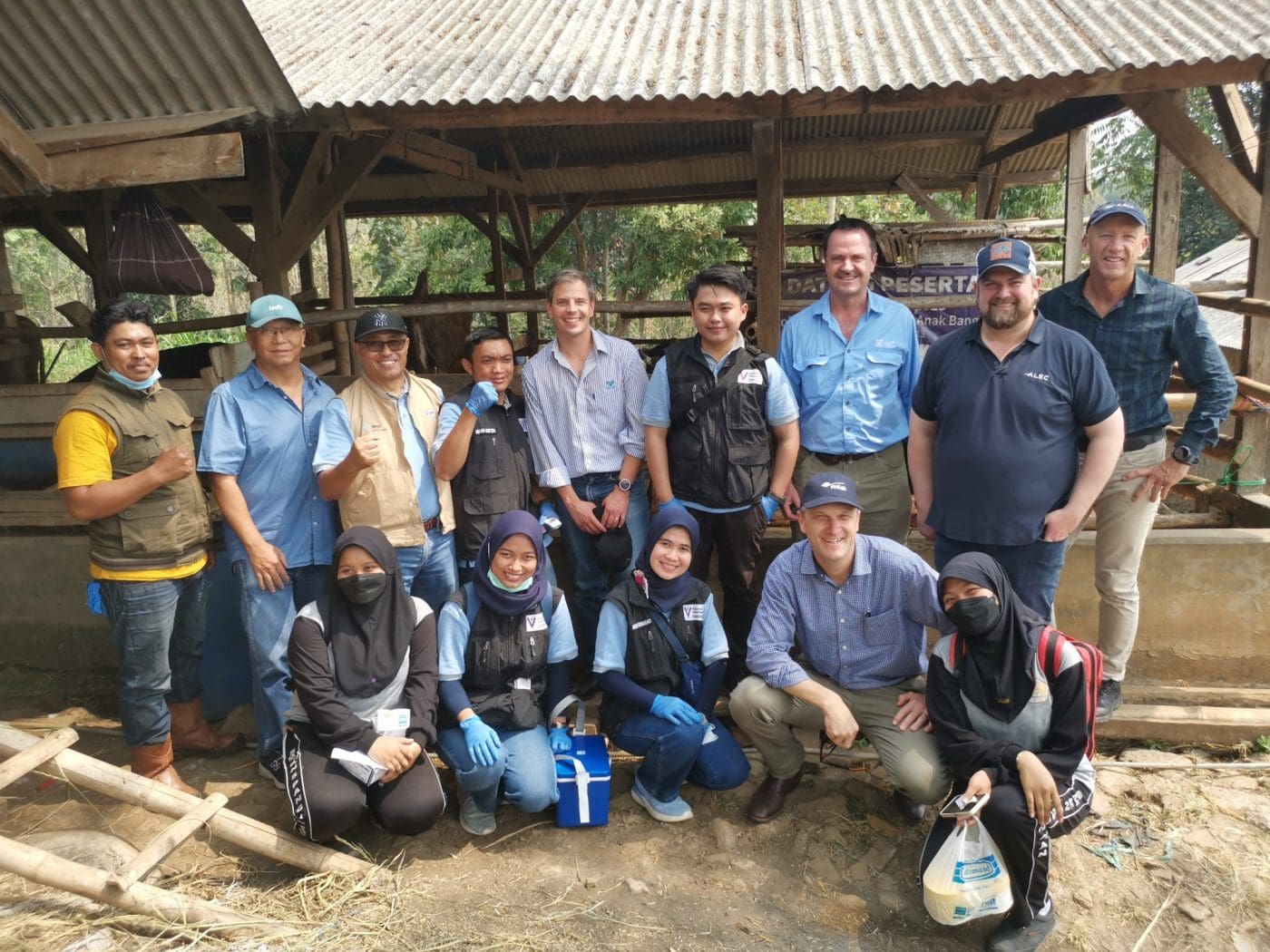
A partnership between Australia’s livestock export industry and Indonesia’s cattle industry is helping to build the capacity of Indonesian smallholders to protect their livelihoods from lumpy skin disease (LSD).
LiveCorp is funding a project being led by the Indonesian Society for Animal Science (ISPI) to increase the vaccination rate for local cattle by providing information about biosecurity, running vaccination events and holding training workshops.
LiveCorp CEO Wayne Collier was in Indonesia last week and visited the regency of Bandung to meet some of the officials and smallholders involved in the project.
“Indonesia and its cattle industry have been affected by the detection of both LSD and foot and mouth disease (FMD) early last year,” Mr Collier said.
“Often smallholder farmers in Indonesia have just two or three cattle, which make up a significant investment of their savings. The impact if those cattle are affected by disease is significant.
“This project aims to support smallholders in protecting their cattle and the livelihoods of their families and communities through vaccination, biosecurity, and good animal care.”
There’s a long-standing relationship between the two industries, including commercial entities, LiveCorp, the Australian Livestock Exporters’ Council (ALEC), ISPI and the Indonesian Beef Cattle Industry Association (GAPUSPINDO).
Head of IPSI, Pak Didiek Purwanto, said the project will help to reduce the spread of LSD.
“Bigger feedlots generally have the resources to increase their biosecurity efforts. However, this is not necessarily the case for the smallholder farmers around them,” Pak Didiek said.
“While vaccines have been provided by the Indonesian government, some smallholders are hesitant to use them because of side-effects from other cattle vaccines, rumours and other factors.
“We are running workshops and providing information to make sure there are people in each village who understand and can deliver the vaccine, identify and treat the disease if cattle do get infected, and pass on this knowledge to others.”
The project will run until December and is being funded under a $1.2 million Australian Government grant.
Source: LiveCorp
